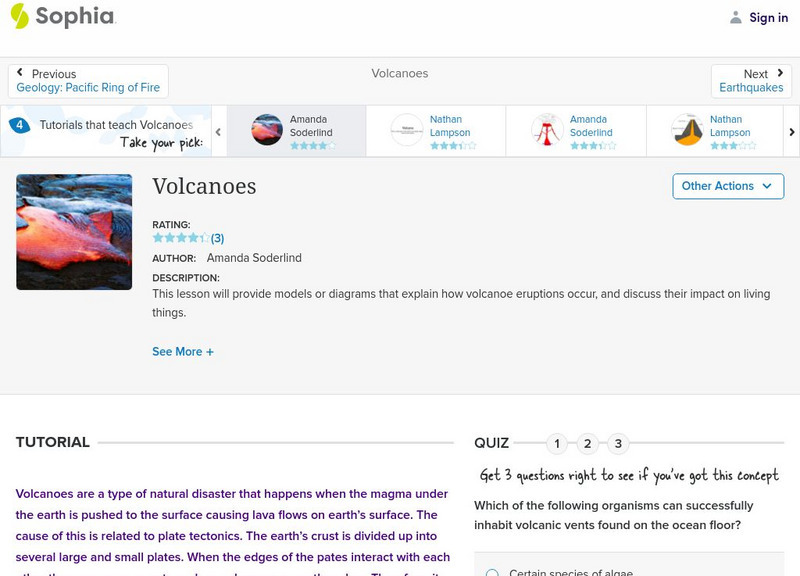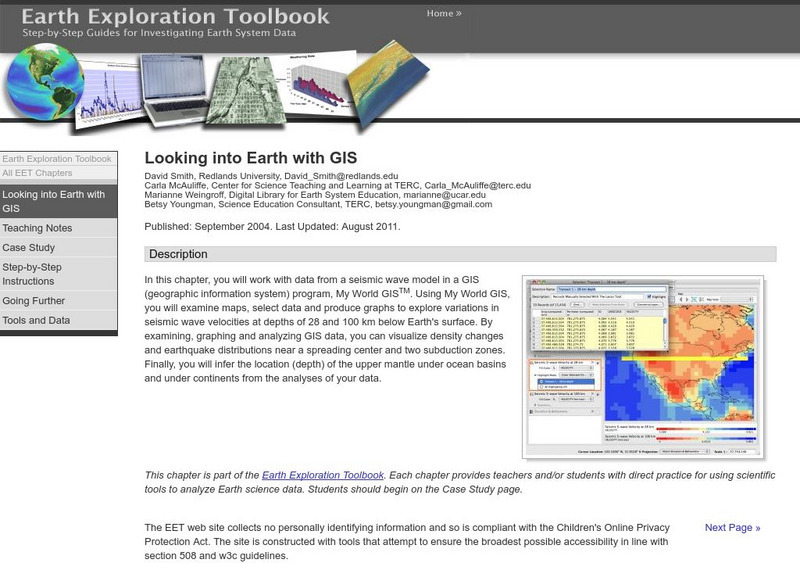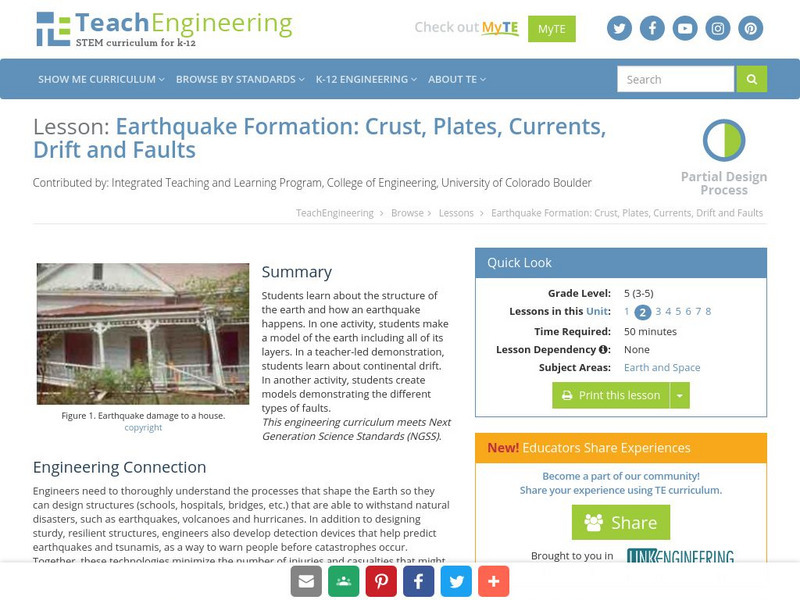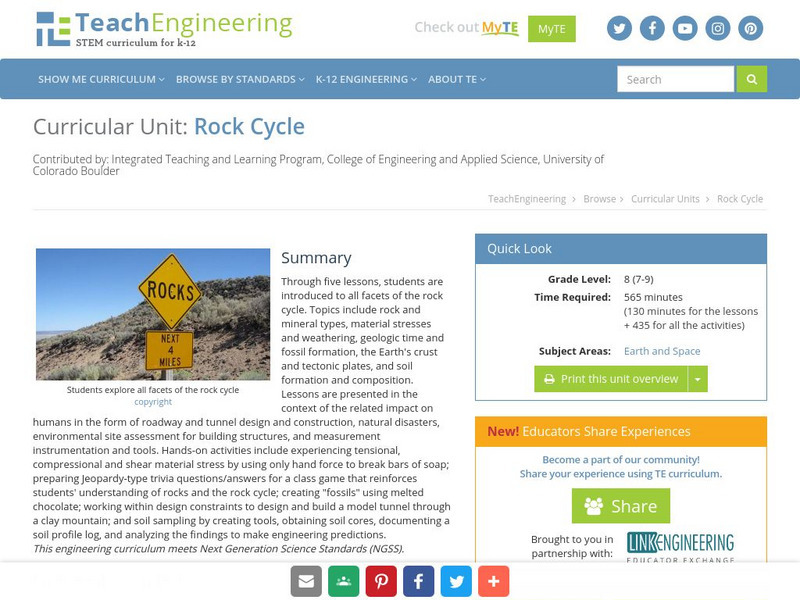Hi, what do you want to do?
Sophia Learning
Sophia: Volcanoes: Lesson 5
This lesson will provide models or diagrams that explain how volcanic eruptions occur, and discuss their impact on living things. It is 5 of 5 in the series titled "Volcanoes."
Science Education Resource Center at Carleton College
Serc: Looking Into Earth With Gis
Multi-lesson activity where students will work with data from a seismic wave model in a GIS (geographic information system) program. They will examine maps, select data, and produce graphs to explore variations in seismic wave velocities...
TeachEngineering
Teach Engineering: Earthquake Formation
Students learn about the structure of the earth and how an earthquake happens. In one activity, students make a model of the earth including all of its layers. In a teacher-led demonstration, students learn about continental drift. In...
TeachEngineering
Teach Engineering: Rock Cycle
Through five lessons, students are introduced to all facets of the rock cycle. Topics include rock and mineral types, material stresses and weathering, geologic time and fossil formation, the Earth's crust and tectonic plates, and soil...








